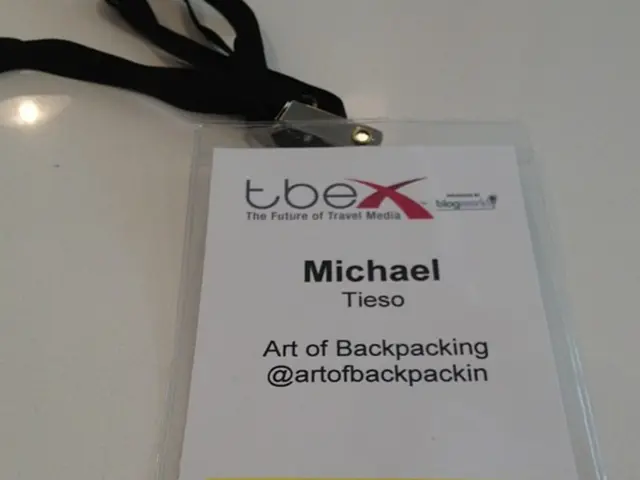BitGo Obtains BaFin MiCA License, Enabling EU-wide Cryptocurrency Access, Tapping into $1 Trillion Market Opportunity
Crypto Powerhouse BitGo Expands Across Europe
BitGo has scored a major victory after receiving a Markets in Crypto-Assets (MiCA) license from Germany's Federal Financial Supervisory Authority (BaFin), making it one of the first significant crypto custodians to comply with Europe's unified regulatory framework. This move will allow BitGo to provide digital asset services across all EU member states under a single harmonized framework, a game-changer for institutional crypto adoption in Europe.
By obtaining the MiCA license, BitGo is set to become a major infrastructure supplier to banks, asset managers, and crypto-native enterprises operating in the rapidly growing $1 trillion digital asset industry. The license significantly reduces regulatory friction, enabling large-scale institutional use of digital assets throughout Europe.
Europe is quickly rising as a global leader in digital asset control, and the MiCA framework is designed to help institutions confidently engage in crypto markets by eliminating regulatory ambiguity. This newfound clarity not only expands BitGo's operational reach but also positions the company to serve an expanding network of clients, including banks, hedge funds, and asset managers looking to enter or scale their crypto portfolios.
Secure Institutional-Grade Infrastructure
Unlike many crypto service providers still navigating fragmented licensing, BitGo's fully compliant setup allows institutions to onboard with minimal legal risk. Their infrastructure offers:
- Multi-signature custody with insurance-backed protection
- Secure APIs for institutional trading and settlement
- Regulatory reporting tools tailored to EU standards
- Native support for staking and token governance
Of particular interest to traditional finance (TradFi) companies joining the crypto space for the first time, BitGo's solid infrastructure provides operational stability and legal certainty.
Ahead of the Curve
Acquiring the MiCA license ahead of competitors like Coinbase and Binance provides BitGo with a significant advantage as these competitors now need to comply with MiCA or risk losing access to parts of the EU market. As the EU continues to roll out MiCA's next phases, covering asset-referenced tokens and more complex financial instruments, BitGo is expected to play a leading role in enabling compliant innovation.
Originally founded in 2013, BitGo has spent the last ten years building enterprise-grade cryptocurrency infrastructure used by over 1,500 institutional clients worldwide, handling over 20% of all Bitcoin transactions by value. Globally, BitGo's operations include partnerships with regulated banks, custodians, and exchanges.
The Future of Digital Finance in Europe
BitGo's success under MiCA demonstrates what can be achieved when crypto firms align with legal expectations early. This win reinforces BitGo's position as a pillar of digital finance infrastructure in the EU and serves as a blueprint for others seeking to operate at scale under clear, enforceable rules. The European digital asset race is on, and BitGo has shown no signs of slowing down.
[1] "Markets in Crypto-Assets Regulation - MiCA Licence Details", BaFin (2022).[2] "BitGo Acquires MiCA License: Why it Matters for Institutional Crypto Adoption in Europe", CoinDesk (2022).[3] "BitGo reaps rewards for aligning with MiCA early", The Block (2022).[4] "Europe's MiCA Approval Pushes BitGo to Front of Digital Asset Custody Race", Forbes (2022).[5] "MiCA: How the New EU Crypto Regulation Will Boost Compliance in Europe's Digital Finance Ecosystem", PwC (2022).
- BitGo's acquisition of the MiCA license positions it as one of the first significant crypto custodians to comply with Europe's unified regulatory framework, allowing it to provide digital asset services across all EU member states.
- The MiCA license significantly reduces regulatory friction for BitGo, enabling large-scale institutional use of digital assets throughout Europe, particularly beneficial for banks, hedge funds, and asset managers looking to enter or scale their crypto portfolios.
- BitGo's infrastructure includes multi-signature custody with insurance-backed protection, secure APIs for institutional trading and settlement, regulatory reporting tools tailored to EU standards, and native support for staking and token governance, making it attractive to traditional finance companies joining the crypto space.
- By aligning with legal expectations early, BitGo has demonstrated what can be achieved and serves as a blueprint for others seeking to operate at scale under clear, enforceable rules, setting the stage for a successful future in digital finance in Europe.
- The success of BitGo under MiCA, combined with its ten-year history of building enterprise-grade cryptocurrency infrastructure, places it at the forefront of the digital finance industry in Europe, potentially outpacing competitors like Coinbase and Binance who must now comply with MiCA to remain in the market.
- As the EU continues to roll out MiCA's next phases, covering asset-referenced tokens and more complex financial instruments, BitGo is expected to play a leading role in enabling compliant innovation, further solidifying its position as a pillar of digital finance infrastructure in the EU.




